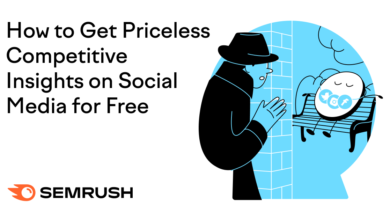Why SEO Doesn’t Work (10 Reasons)-SEO

SEO stands for search engine optimization which is the process of improving your website’s visibility and performance on search engines like Google, Yahoo, and Bing SEO can help you drive more organic traffic, leads, and sales to your website.
But sometimes, SEO doesn’t work.
You may have invested a lot of time, money, and effort into SEO, but you’re not seeing the results you expected. As a result, you may wonder why SEO is not working and what you can do to fix it.
In this article, we will explore the common reasons why SEO doesn’t work and how you can avoid or overcome them so you can have better results for your website.
Why SEO Doesn’t Work
1. Unrealistic Expectations for SEO
One of the main reasons why SEO doesn’t work is that you have unrealistic expectations about what SEO can do for your business. You may expect SEO to deliver instant results, generate huge amounts of traffic, or rank your website for highly competitive keywords.
But SEO is not a magic bullet.
SEO is a long-term and ongoing process that requires research, planning, execution, monitoring, and improvement. It also depends on many factors that are beyond your control, such as user intent, search engine algorithms, and competition.
Therefore, you need to set realistic and measurable goals for your SEO campaign. You need to understand what SEO can and cannot do for your business. You need to be patient and consistent with your efforts. And you need to track and evaluate your progress and adjust your strategy accordingly.
2. Poor Keyword Optimization
Another reason why SEO doesn’t work is that you have poor keyword optimization. Keywords are the words and phrases that users type into search engines to find what they are looking for. Keywords are also the words and phrases that you add to your web content to make it relevant and visible to search engines and users.
But keyword optimization is not just about stuffing keywords into your content. It’s about finding the right keywords that match your audience’s intent, your business goals, and your content format. It’s also about using keywords naturally and strategically in your title tags, meta descriptions, headings, content, images, links, etc, to improve the on-page SEO signals.
Therefore, you need to conduct keyword research to find what words and phrases your target audience is using to search for information, products, or services related to your website. You need to choose keywords that are relevant, popular, achievable, and profitable. And you need to create keyword-optimized content that answers your audience’s queries and provides value and solutions.
Check out these related guides for help with the keyword optimization process:
3. Not Enough High-Quality Backlinks
Another reason why SEO doesn’t work is that you have no high-quality backlinks. Backlinks are links from other websites that point to your website. Backlinks help you increase your website’s popularity, authority, and relevance. They also help you drive more referral traffic to your website.
But not all backlinks are created equal. Some backlinks are more valuable than others. You want backlinks from websites that are relevant, reputable, and authoritative. You don’t want backlinks from websites that are irrelevant, spammy, or low-quality because they will not do anything good for your SEO rankings.
Therefore, you need to create high-quality, relevant, and informative content that other websites would want to link to organically. You also need to reach out to relevant bloggers, journalists, influencers, and other websites and ask them to link to your content. You also need to monitor and analyze your backlink profile and remove or disavow any harmful or unnatural links.
Use these related guides to learn how to do link building effectively for off-site SEO:
4. Slow Page Speed
Another reason why SEO doesn’t work is that you may have slow page load speeds. Page load speed is the time it takes for your web page to load completely on a browser. Page load speed affects how search engines crawl, index, and rank your website, and how users perceive and interact with your content.
Page load speed is a Google ranking factor for both desktop and mobile searches. Google has stated that page speed is part of its Core Web Vitals, which are a set of metrics that measure the user experience of a web page.
As a result, a slow page load speed can negatively impact your SEO performance and user satisfaction, leading to lower keyword rankings and organic visibility in the search engine results pages (SERPs).
Therefore, you need to measure your page load speed using tools like Google PageSpeed Insights or GTmetrix. You also need to optimize your page load speed by using techniques such as:
- Minifying your code
- Compressing your images
- Enabling caching
- Reducing redirects
- Using a content delivery network (CDN)
5. Unhelpful Content
Another reason why SEO doesn’t work is that you have unhelpful content. Content is the core of SEO. It’s the vehicle you use to reach and engage your audience. Content can include text, images, videos, audio, infographics, etc.
But not all content is created equal. Some content is more helpful than others. And Google has updated its ranking system to target unhelpful content by reducing its visibility in the SERPs. Starting in August 2022, Google began releasing Helpful Content Updates (HCU), which are used to better reward content where visitors feel they’ve had a satisfying experience based on a set of undisclosed user signals.
Therefore, you need to create helpful content that matches your audience’s intent, your business goals, and your content format. You also need to update and improve your content regularly to keep it fresh, accurate, and relevant.
You want content that answers your audience’s queries and provides value and solutions in the best possible manner. You don’t want content that is low-quality, irrelevant, or outdated because it will not last for SEO rankings.
If your SEO is not working, then it may be the quality of your content. Look at it objectively from a standard user’s point of view. Would you be satisfied if you landed on this web page? Is the content missing key information? Does it read well? Have good grammar and punctuation? Is it too ad-heavy?
6. Not Being Intentional About Internal Linking
Internal linking is the practice of linking from one page of your website to another page of your website. Internal linking helps you improve your website’s structure, usability, and relevance. It also helps you distribute your website’s authority, traffic, and ranking potential.
In SEO, you can pass Google PageRank to other pages on a site by linking from pages with higher Page Authority (PA) scores (or high traffic) to pages with low PA scores (or low traffic) to help boost the target page’s rankings in the SERPs.
However, internal linking is not just about adding links randomly or excessively. It’s about adding links strategically and purposefully. You want links that are relevant, helpful, and natural for the user. You don’t want links that are irrelevant, spammy, or forced.
Therefore, you need to be intentional about internal linking.
- You need to use descriptive anchor texts that tell users and search engines what the linked page is about (i.e., use the target SEO keywords for the page).
- You need to link to pages that are related to the topic or context of the current page.
- And you need to link to pages that are important or valuable for your website’s goals.
See this related guide on Internal Linking Best Practices to get a complete list of tips and strategies for internal linking for SEO.
7. Technical SEO Issues
Another reason why SEO doesn’t work is that you have technical issues on your website. Technical issues are the problems that affect how search engines crawl, index, and rank your content.
Common technical SEO issues can include:
- Broken links
- Duplicate content
- Missing tags
- Incorrect robots.txt
- Poor site structure
- No sitemap
- No SSL certificate
Technical issues can hurt your SEO performance and user experience. They can prevent search engines from accessing and understanding your website. They can also frustrate and confuse users who visit your website.
Therefore, you need to identify and fix your technical issues using tools like Google Search Console or Screaming Frog. You also need to follow the best practices for technical SEO to ensure that your website is functioning properly and providing a good user experience.
8. Unfriendly Mobile Design
SEO also doesn’t work if your website doesn’t have a mobile-friendly, responsive design. Responsive design is a web design approach that allows your website to adapt to different screen sizes and devices. Responsive design ensures that your website provides a consistent and optimal user experience across desktops, laptops, tablets, and smartphones.
A mobile-friendly design is important for SEO because it affects how search engines crawl, index, and rank your website. It also affects how users access and engage with your website. Google has stated that responsive design is its preferred configuration for websites and Google now uses mobile-first indexing for content. As a result, a non-responsive design can hurt your SEO performance and user satisfaction.
Therefore, you need to check your website’s responsiveness using tools like Google Mobile-Friendly Test or BrowserStack. You also need to implement responsive design by using techniques such as:
- Using flexible layouts
- Using relative units
- Using media queries
- Using fluid images
- Using responsive fonts
9. Focusing Too Much (Or Too Little) On Your Competitors
Another reason why SEO doesn’t work is that you are focusing too much or too little on your competitors. Competitors are the other websites that are ranking for the same SEO keywords and targeting the same audience as you.
Competitors can be a source of inspiration and information, but they can also be a source of distraction and frustration that can harm your SEO efforts.
If you focus too much on your competitors, you may lose sight of your own goals and strengths. You may copy their strategies without understanding why they work or don’t work for them. You may also become obsessed with outranking them and neglect other aspects of your SEO and digital marketing. (See Why SEO Is Important for Digital Marketing.)
If you focus too little on your competitors, you may miss out on valuable insights and opportunities for growth. You may not know what they are doing well or poorly, what they are offering or missing, and what they are planning or changing. You may also fall behind them and lose your competitive edge.
Therefore, you need to find a balance between focusing on your competitors and focusing on yourself. You need to conduct competitor analysis to learn from their successes and failures, their strengths and weaknesses, and their threats and opportunities. You also need to differentiate yourself from your competitors by offering unique value and solutions to your audience.
You can use SEO analysis tools like Semrush, Ahrefs, and SE Ranking to conduct competitor analysis for keyword gaps, backlink gaps, and content gaps. As a result, you can create a better SEO campaign for your website that fills in the gaps among your competition to help you meet your goals faster.
10. Not Waiting Long Enough
The last reason why SEO doesn’t work is that you have not given it enough time to show results. Waiting can be difficult to do, but there are several factors to consider before you conclude that your SEO efforts are not working, such as:
- Your starting point
- Your competition
- Your industry
- Your goals
- Your budget
- Your strategy
SEO is not a quick fix. It’s a long-term and ongoing process that requires patience and consistency. It can take months or even years to see significant results from SEO.
But if you give up too soon, you may miss out on the benefits of SEO for your website and business. For example, there have been times when we published an article on the SEO Chatter website that ranked between positions 50-100 for its target keywords. But over time, those articles jumped up to the top 10 positions after Google’s algorithm had fully analyzed the content for those keywords, crawled the keyword-optimized internal links, and the pages acquired quality backlinks.
Therefore, you need to have realistic and measurable goals for your SEO campaign. You also need to track and evaluate your progress and adjust your strategy accordingly. And you need to keep investing in SEO and make it a priority for your online success.

Summary for Why SEO Doesn’t Work
SEO is a powerful and essential digital marketing tool that can help you grow your online business and achieve your online goals. But SEO doesn’t work automatically or magically. It requires research, planning, execution, monitoring, and improvement. If your SEO is not working, it may be due to one or more of the reasons we discussed in this article. By avoiding or overcoming these reasons, you can fix your SEO and make it work for you.

The Editorial Staff at SEO Chatter is a team of search engine optimization and digital marketing experts led by Stephen Hockman with more than 15 years of experience in search engine marketing. We publish guides on the fundamentals of SEO for beginner marketers.
#SEO #Doesnt #Work #Reasons





